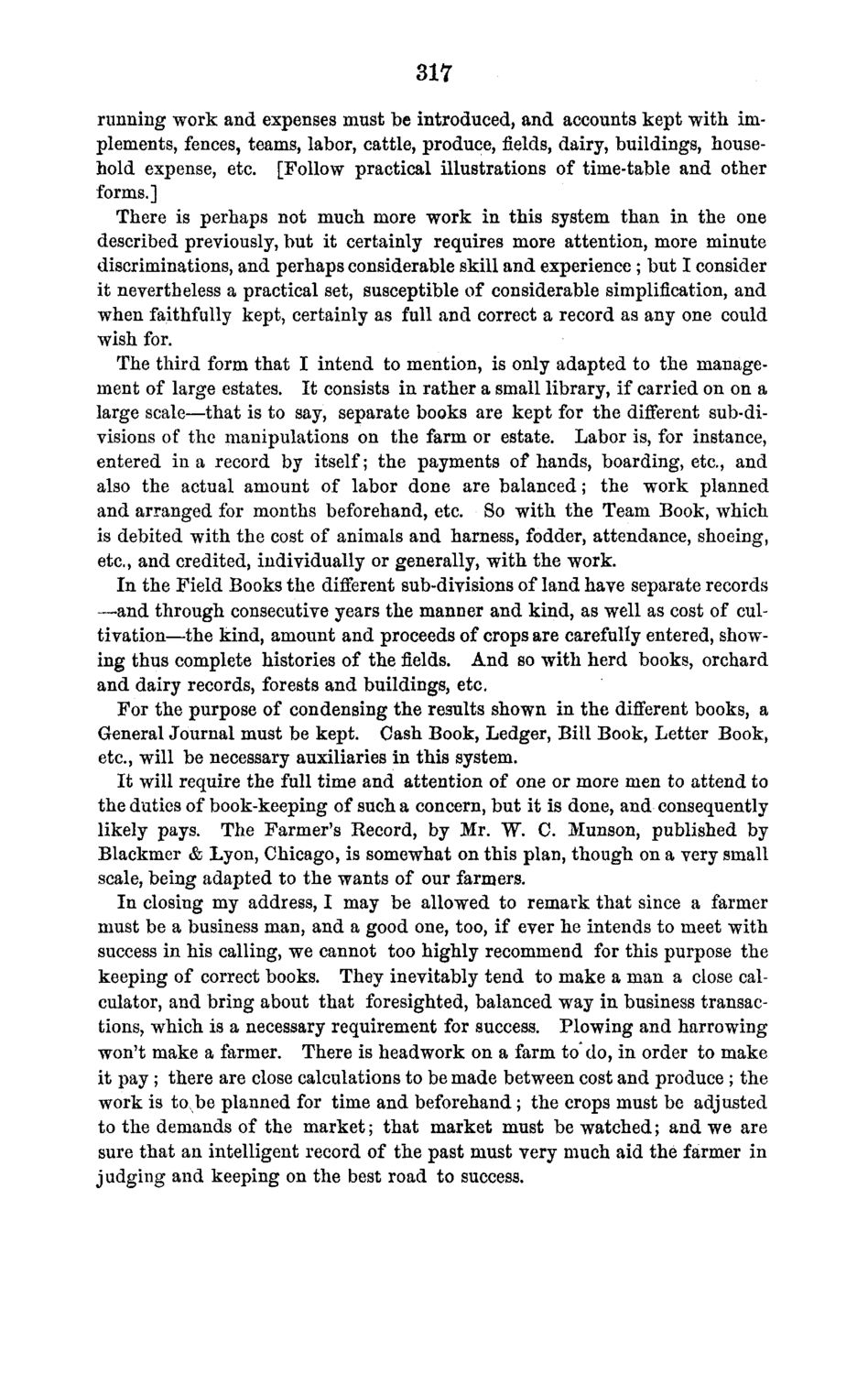| |
| |
Caption: Board of Trustees Minutes - 1870
This is a reduced-resolution page image for fast online browsing.

EXTRACTED TEXT FROM PAGE:
317 running work and expenses must be introduced, and accounts kept with implements, fences, teams, labor, cattle, produce, fields, dairy, buildings, household expense, etc. [Follow practical illustrations of time-table and other forms.] There is perhaps not much more work in this system than in the one described previously, but it certainly requires more attention, more minute discriminations, and perhaps considerable skill and experience ; but I consider it nevertheless a practical set, susceptible of considerable simplification, and when faithfully kept, certainly as full and correct a record as any one could wish for. The third form that I intend to mention, is only adapted to the management of large estates. It consists in rather a small library, if carried on on a large scale—that is to say, separate books are kept for the different sub-divisions of the manipulations on the farm or estate. Labor is, for instance, entered in a record by itself; the payments of hands, boarding, etc., and also the actual amount of labor done are balanced; the work planned and arranged for months beforehand, etc. So with the Team Book, which is debited with the cost of animals and harness, fodder, attendance, shoeing, etc., and credited, individually or generally, with the work. In the Field Books the different sub-divisions of land have separate records —and through consecutive years the manner and kind, as well as cost of cultivation—the kind, amount and proceeds of crops are carefully entered, showing thus complete histories of the fields. And so with herd books, orchard and dairy records, forests and buildings, etc. For the purpose of condensing the results shown in the different books, a General Journal must be kept. Cash Book, Ledger, Bill Book, Letter Book, etc., will be necessary auxiliaries in this system. It will require the full time and attention of one or more men to attend to the duties of book-keeping of such a concern, but it is done, and consequently likely pays. The Farmer's Record, by Mr. W. C. Munson, published by Blackmer & Lyon, Chicago, is somewhat on this plan, though on a very small scale, being adapted to the wants of our farmers. In closing my address, I may be allowed to remark that since a farmer must be a business man, and a good one, too, if ever he intends to meet with success in his calling, we cannot too highly recommend for this purpose the keeping of correct books. They inevitably tend to make a man a close calculator, and bring about that foresighted, balanced way in business transactions, which is a necessary requirement for success. Plowing and harrowing won't make a farmer. There is headwork on a farm to* do, in order to make it pay; there are close calculations to be made between cost and produce ; the work is tovbe planned for time and beforehand; the crops must be adjusted to the demands of the market; that market must be watched; and we are sure that an intelligent record of the past must very much aid the farmer in judging and keeping on the best road to success.
| |